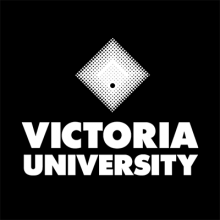“Block teaching” can improve undergraduates’ results by an entire grade, transforming credits into distinctions, a first-of-its kind study has found.
A Victoria University evaluation of the block mode – in which universities teach units sequentially in blocks of several weeks, rather than delivering multiple subjects simultaneously – has found a “robust” impact on performance, with students’ results typically boosted by more than 10 marks.
The benefits were strongest for subgroups at risk of performing poorly, including the economically disadvantaged and students with little prior education or modest school results.
Business students also thrived under block mode. But while all groups performed better than under traditional teaching patterns, the advantages were less pronounced for arts and education students, while older and part-time students benefited only about half as much as their younger and full-time peers.
And while the researchers had also expected block teaching to improve student satisfaction, students appeared only slightly happier with their teachers and marginally less satisfied with the design of their units.
They tended to find workloads challenging – particularly the more academically able students – and were less enamoured with learning activities and resources. Such findings were “difficult to explain” in a mode focused on small-group learning, the researchers report in the journal Studies in Higher Education.
Victoria introduced block teaching for all first-year undergraduates in 2018 and is extending it to other course levels. The study treated the 2018 adoption as a “natural experiment”, comparing the final weighted marks and satisfaction ratings from first-year students with equivalent data from the two previous years.
Lead author Daniel Loton said that the overall findings were encouraging. “The university wanted to ensure that no student subgroups were being left behind in the new model,” said Dr Loton, an educational researcher with Victoria’s connected learning department. “Our analysis was trying to find whether any groups were greatly less satisfied or performing much worse.
“The increase in marks was a very substantial effect size. It really does seem to have helped students perform well. That seems pretty indisputable.”
He said that while the satisfaction “effects” had been small, satisfaction rates had already been relatively high – so there was not much room for them to improve – and preliminary results from 2019 research suggested a marginal uptick in satisfaction.
Research into the block mode has been undertaken at other institutions that have adopted it – typically, small private Canadian liberal arts colleges – but this is thought to be the first to analyse block teaching across a relatively large cohort and to compare the results with earlier baseline data.
Dr Loton said that Victoria was determined to conduct a “robust evaluation” of the outcomes. “It’s really a frank and fearless investigation of their own intervention,” he said.
“There are other sources of data that we need to analyse – information from faculty and other indicators from students, such as open-ended comments.”
He said that the smaller apparent benefits of block teaching for part-time students could reflect the fact that there had been relatively few of them, and they had produced less information to analyse because they had undertaken fewer blocks.
And while it was not clear why business students in particular had flourished, business courses were often taught in intensive mode. “It could be that the nature of the curriculum and assessment in the business fields is more suited to an intensive format.”
Register to continue
Why register?
- Registration is free and only takes a moment
- Once registered, you can read 3 articles a month
- Sign up for our newsletter
Subscribe
Or subscribe for unlimited access to:
- Unlimited access to news, views, insights & reviews
- Digital editions
- Digital access to THE’s university and college rankings analysis
Already registered or a current subscriber? Login










